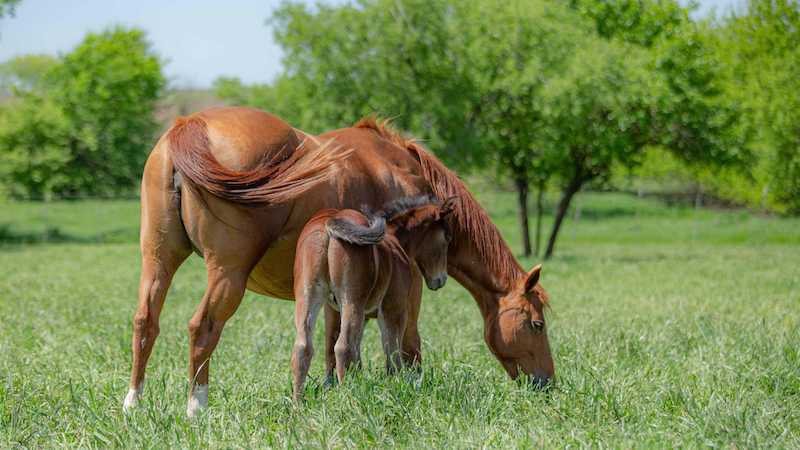Who Should I Breed My Mare To? - With Shane Plummer as featured on QHN

So, you’ve got a mare. You like her. You think she’d make a great broodmare.
Then comes the question: What do you breed her to?
Experienced breeders have time-tested strategies, and many have so thoroughly mastered the mysteries of bloodlines and magic crosses they could teach an advanced college course on the subject. But, for those new to the breeding business, navigating the many variables that come with picking the right stallion for their mare can be a challenge.
For this edition of Industry Insider with SDP, Quarter Horse News (QHN) sat down with SDP Buffalo Ranch owner Shane Plummer to ask how mare owners can find the stallion to produce the foal they really want.
The answer starts with mare owners asking themselves some questions.
QHN: Someone calls you up and says, “Shane, I have a mare I want to breed. Which one of your stallions should I breed her to?” How do you respond?
Plummer: What are your goals? Maybe they say they want to win the futurity, whether that be the NCHA Futurity or NRHA Futurity. OK, that’s a good goal. It’s my goal, too. So, then I say, OK, what do you have in a mare?
QHN: What do you want to know about the mare?
Plummer: They need to tell me all about the mare, starting with her pedigree. The pedigree is the genotype — it’s the Legos that make the horse what it is. And to me, that’s half of the equation.
The other half of the equation is the mare’s phenotype, or the physical characteristics of the mare. What does the mare look like? What does she act like? How tall is she? Tell me about her feet. Tell me about her bone. Tell me the good things. Tell me the bad things. Tell me everything about the horse.
QHN: There’s all kinds of mares out there, and not every one of them is probably capable of producing a futurity champion or a high-caliber Western performance horse. That isn’t to say the mare can’t still produce a nice foal that could compete at a different level or make a good riding horse, but it still might be difficult for some people to hear. How do you approach that conversation?
Plummer: One of the greatest horsemen of all time, a Kentucky guy, had a sign on his wall that said, “You can say whatever you want about my wife, but you better not talk about my horse.” That’s a joke, of course, but people get very sensitive about these things.
If somebody brings me a mare and the only thing that I can say about her is she has four legs, two ears and a tail … I get that you want a foal, but let’s not go breed to the stallion with the highest breeding fee out there, because you’re going to be disappointed.
QHN: Some people are very focused and know exactly what their goal is for their future foal. Others might have very broad or abstract goals when it comes to their horses. How important is it for you as a stallion manager and owner to know the mare owner’s goals?
Plummer: What they want is the most important thing to me, and trying to draw that out of them is half the battle of narrowing down the stallion roster to find the right stallion.
I think very few people know how to articulate their goals, and I’m not railing against that. When I first started in the horse breeding business as my profession, I went very analytical with everyone and I learned quickly that doing it that way didn’t work. I was wrong.
At the end of the day, it’s their horse, it’s their money, and none of this stuff is necessary. What I mean by that is, this is supposed to be fun. We’re all passionate about it and we all want to make money with it, but at the end of the day, there’s a lot easier ways of spending $2,000.

 Add to Favorites
Add to Favorites